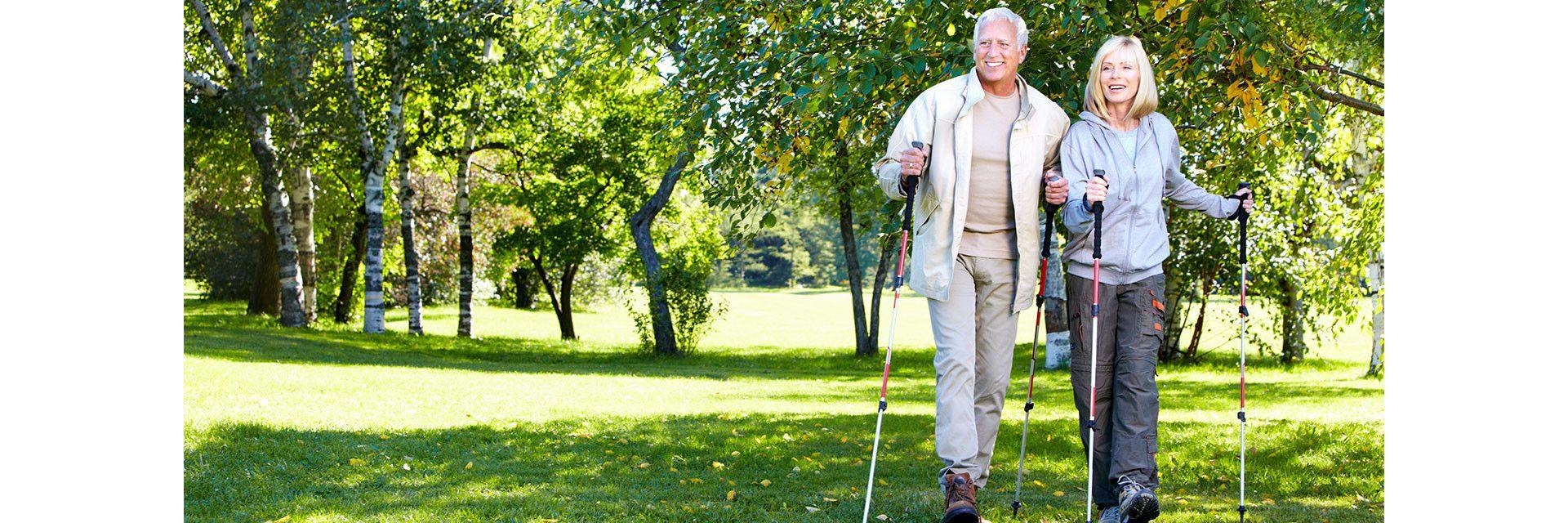November 30th, 2020
Hiking 101 from Health Professionals Part 1

New Jersey is home to some of the most beautiful hiking trails in the world and whether you are a seasoned pro or a first-timer, there are things you must keep in mind while you are out exploring. Read below a few tips from our specialists at Rothman Orthopaedic Institute on what you should know before hitting the trails.
What are the most common orthopaedic injuries you have treated/heard of in relation to patients hiking?
Dr. Arjun Saxena, Joint Replacement Surgeon: Some of the most common extremity injuries sustained during hiking are blisters on feet and sunburn. Good foot- wear and sunscreen can help to avoid these ailments. Ankle and knee twists and sprains are the most common injuries associated with hiking. Good shoe wear and paying attention to the surfaces on which you walk can help to prevent these types of injuries. Patella and achilles tendonitis are common as well; it is important to stretch before, during, and after your hike to try to avoid overuse and soft tissue injuries.
Dr. Evan Conte, Sports Medicine Surgeon: The most common injuries affecting hikers are of the knee and the foot and ankle. The most common knee injury that I see is "hiker’s knee" which is also known as patellofemoral syndrome. This is also known as "runner's knee" which involves increased pressure or stress between the kneecap and the femur bone which causes dull aching soreness and pain especially when going up or down inclines. I have seen this in patients develop when going down a steep incline when the knees are straight or only slightly flexed. This causes increased pressure behind the kneecap that results in pain in the front section of the knee. The other common injury that we see is a meniscus tear in the knee. The meniscus is a fibrocartilage based cushion between the femur and tibia bone and is susceptible to tearing with increased pressure and especially with twisting or rotational motions that can be seen when anchor loses their balance and loose footing or leaves in the body twists resulting in the meniscal tear. This will cause pain and swelling of the knee joint and can be quite disabling.
What would you tell a first-time hiker? What activities should people avoid or go easy on?
Dr. Conte: Recommendations for first time hikers are to know yourself. If you have a history of knee pain, it is imperative to choose the right type of terrain or aggressiveness of trial that he will be tackling that day. Is always important to keep in mind that you not only have to go into the woods but also have to walk out the same distance potentially when injured. Steep inclines or trails with wet mud or loose rocks should be avoided for the knob is hiker or anyone hiking after recovering from an injury.
Dr. Saxena: For a first-time hiker I would absolutely tell them to start slow. Don’t try an extremely long or difficult hike your first time out. We all want to take the selfie on top of the mountain with the view in the background but much like anything, we have to work up to those difficult hikes. Start easy and enjoy the time outdoors.
Do you enjoy hiking? Favorite place you have ever hiked?
Dr. Saxena: My wife and I enjoy hiking. Having small children has made it a difficult activity to do in the last few years, but it is absolutely an activity we look forward to sharing with our children. In our busy world with IPADs and cell phones, we think hiking will be a great activity to bring our family closer and experience the beauty of nature without the interference of modern technology.
Some of our most memorable hikes have been in Hawaii. It is a state like no other with unmatched natural beauty. Everywhere you go, there is a waterfall! We recently purchased a book covering the many beautiful waterfalls of Pennsylvania (I was surprised there are so many) and plan on hiking to many of them in the future!
Dr. Conte: My favorite local place to hike is the Sourland Mountain Preserve in Hillsborough, NJ. This is a family moderate level hike. There is also mountain biking bird watching bouldering and horseback riding permitted at the preserve in addition to hiking.
What’s your main goal when discussing hiking with a patient?
Dr. Saxena: As a hip and knee replacement surgeon, my main goal is to help my patients to walk without pain. In addition, I like to understand my patients’ goals; some just want to be able to walk their dog while others want to be able to walk the Great Wall of China! Hiking is a great way to appreciate so much of what nature has to offer us and improve your overall health and it is never too late to start!
Looking for more hiking safety tips? Check out Part Two – Safety Tips!
Doctors Saxena and Conte both see patients in Mercerville, Pennington and Princeton. For more information or to make an appointment, please click here.




